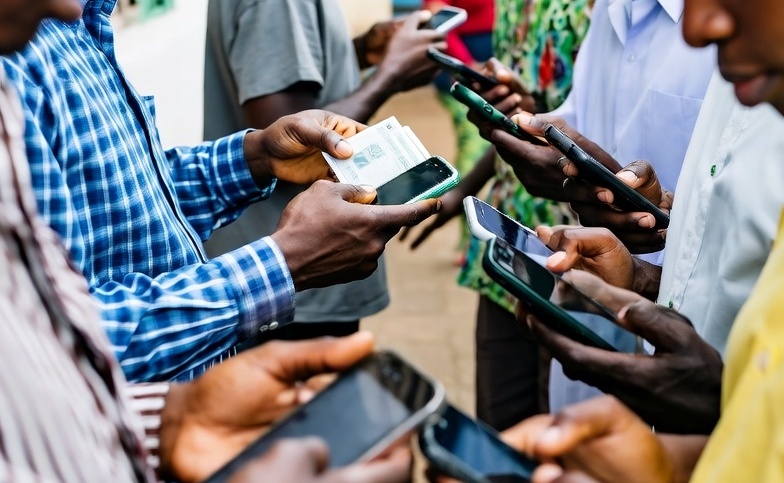•Probes over $1.8bn grants, $2.8bn received by Nigeria from global fund, USAID
Adedayo Akinwale in Abuja
The House of Representatives was involved in a heated debate yesterday over a motion seeking to protect the Dangote Refinery and other strategic private investments from “adversarial” labour union activities.
Also yesterday, the House of Representatives resolved to investigate over $1.8 billion grant and $2.8 billion received by Nigeria from Global Fund and USAID from 2021 to 2025, for fighting HIV, tuberculosis, malaria and for supporting resilient and sustainable systems for health.
The motion seeking to protect the Dangote Refinery and others from adversarial labour union activities was in response to the recent industrial face-off between the Petroleum and Natural Gas Senior Staff Association of Nigeria (PENGASSAN) and the Dangote Refinery, which temporarily disrupted operations at the facility and also led to scarcity of fuel and Gas across the country.
The motion was jointly sponsored by Alhassan Doguwa (APC, Kano) and Abdulssamad Dasuki (PDP, Sokoto) at the resumed plenary yesterday.
Moving the motion, Doguwa said the strike action at the $20 billion Dangote Refinery in the Lekki Free Trade Zone disrupted production and resulted in a daily loss of about 200,000 barrels of crude oil for three days.
He expressed worry that continued union disruptions could discourage investors and undermine confidence in the Nigerian economy.
Doguwa described the refinery as a strategic national asset whose stability was critical to Nigeria’s energy security and economic growth.
The lawmaker was of the opinion that since the refinery operates within a Free Trade Zone, it falls under the regulatory framework of the Nigeria Export Processing Zones Authority (NEPZA), citing Section 5 of the NEPZA Act, which exempts employment in such zones from regular labour enactments.
Furthermore, Dogunwa pointed out that employment in the Free Zone was governed by rules and regulations made by the Authority and not subject to the provision of enactments relating to employment matters.
He argued that the actions by labour unions that disregard the legal protections conferred on Free Zone, under NEPZA Act, not only constitute a breach of law but also created a hostile investment environment that may deter future local and foreign investors.
The lawmaker warned that if private investment of strategic national importance was continually subjected to unlawful disruptions by adversarial unionism, Nigeria risks not only the failure of key economic assets but also the erosion of investor confidence necessary for national growth and development.
In his submission, the co-sponsor of the motion, Dasuki, reinforced the argument, citing Section 18(5) of the NEPZA Act, which prohibits strikes or lockouts for 10 years from the commencement of operations within a Free Zone.
“For the first time in our history, a Nigerian has built one of the largest refineries in the world. Yet, just two and a half years into operation, unions are shutting it down in violation of the law. The government’s decision to yield to union demands undermines the private sector and violates our own laws”, he said.
Contributing, the Minority Leader, Hon. Kingsley Chinda, while supporting the motion in principle, cautioned against hasty conclusions.
On his part, Hon Ahmed Jaha urged the leadership of the House to intervene and mediate between Dangote Group and PENGASSAN.
His words: “This matter doesn’t need public confrontation. We’ve seen the leadership of this House successfully resolve disputes between ASUU and the federal government in the past. This one can also be settled amicably without investigation or enforcement. The leadership should bring both sides together and resolve it with dignity.”
His proposal to replace the investigative approach with direct mediation drew overwhelming support from members.
The House, therefore, adopted Jaha’s amendment and resolved that the leadership of the House should immediately engage both parties to amicably resolve the Dangote–PENGASSAN dispute through dialogue.
Meanwhile, the House of Representatives has resolved to investigate over $1.8 billion grant and $2.8 billion received by Nigeria from global fund and USAID from 2021 to 2025 for the response against HIV, tuberculosis, malaria and for supporting resilient and sustainable systems for health
The resolution of the House followed the adoption of a motion moved at plenary by Hon. Philip Agbese.
Presenting the motion, the lawmaker said Nigeria has received an estimated $1.8 billion in grants from Global Fund, from 2021 to 2025, for the fight against HIV, TB and Malaria, in addition to over $2.8 billion received from USAID to cover health threats such as HIV, malaria, polio, and tuberculosis between 2022 and 2024.
Agbese added that the Global Fund to fight AIDS, Tuberculosis and Malaria, founded in January 22, 2002, as an independent, multilateral financing entity designed to raise significant resources and accelerate efforts to end the HIV, TB, and malaria epidemics in the world, particularly in sub-Saharan Africa.
He explained that Nigeria also received over $6 billion in health assistance from the US President’s Emergency Plan for AIDS Relief from 2021 to 2025 to fight HIV/AIDS and build the capacity of Health and community Systems.
Agbese noted that the Federal Ministry of Health and Social welfare was responsible for the utilisation of the grants from USAID, while the Country Coordinating Mechanism Nigeria was responsible for utilising and implementing the Global Fund grants in Nigeria.
He expressed concern that with this huge investment in the nation’s response to HIV, TB and Malaria, Nigeria still bears a great burden in all these public health threats.
According to him, in 2023, approximately 15,000 AIDS-related deaths occurred among Nigerian children aged 0-14years, while 51,000 AIDS-related deaths were recorded in the country, with Nigeria ranking third globally in HIV deaths, and also with the highest number of HIV cases in West and Central Africa.
Agbese stressed that in the area of TB, Nigeria ranks first in Africa and sixth in the world, accounting for 4.6 per cent global TB burden, while the country also bears the highest malaria burden globally, accounting for an estimated 26.6 percent of global cases and 31 percent of malaria deaths.
He said the UN Sustainable Development Goal has established a target of 2030 for all nations to ensure the elimination of HIV, TB and Malaria in their Countries, for which if the status quo continues, Nigeria might likely not meet this target.
The lawmaker lamented that there has not been a coordinated and robust oversight of the implementers of these grants received by the country by the National Assembly.
Agbese said if something drastic was not done to reassess and reevaluate the utilisation and implementation of these grants with the 8th replenishment in view, Nigeria mighf continue to suffer huge burdens and continue to lose our population to these diseases, thereby failing in the elimination of HIV, TB, and Malaria by year 2030.
The House resolved: “To mandate the House Committee on HIV/AIDS, Tuberculosis and Malaria Control to investigate the utilisation of the grants received by Nigeria from 2021 to 2025 for the fight against HIV, Tuberculosis and Malaria and report back to the House within four weeks for further legislative action.
“Mandate the Coordinating Minister of Health and Social Welfare to provide the implementation plan and approvals granted by the National Assembly for the utilisation and expenditure of these grants.”



